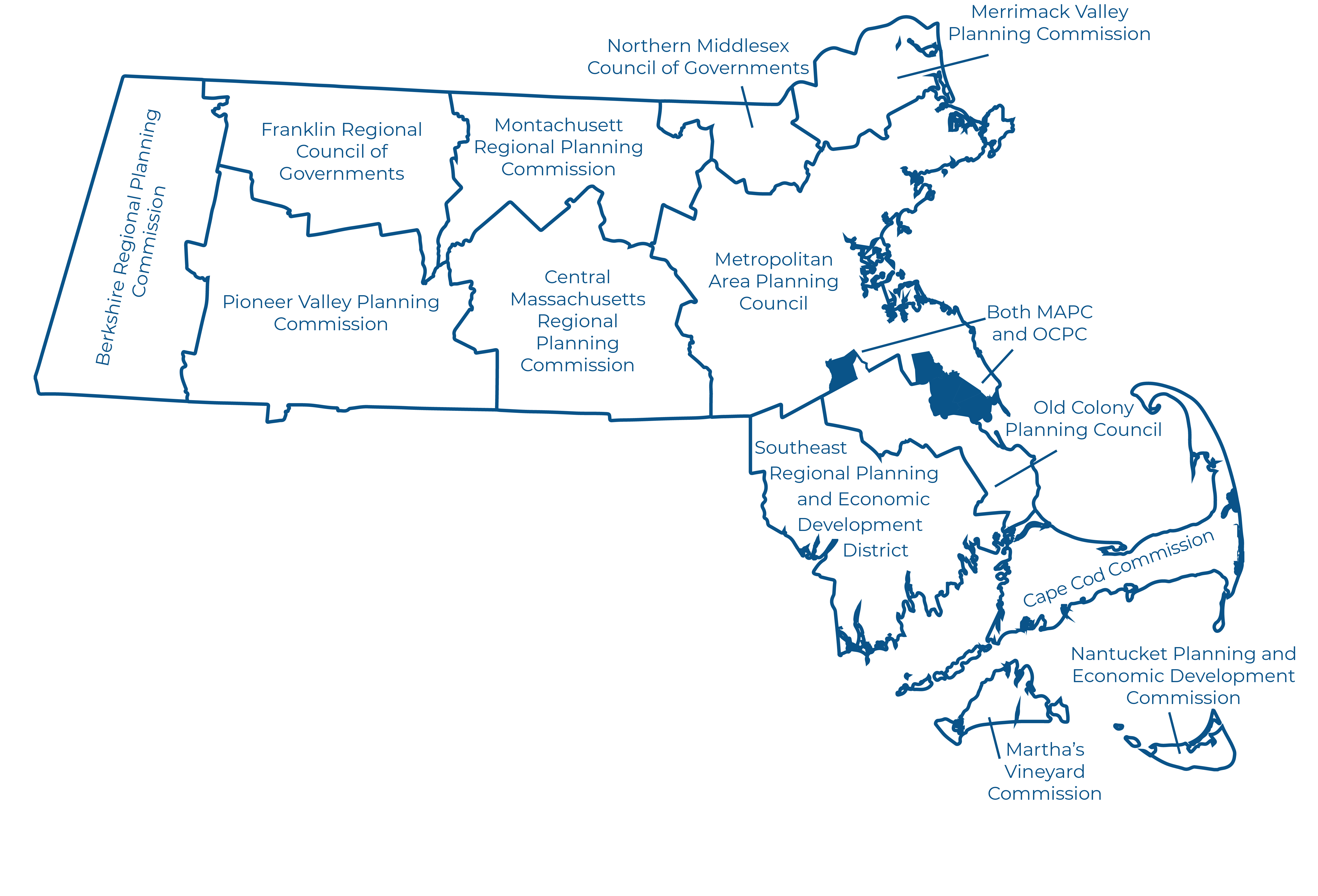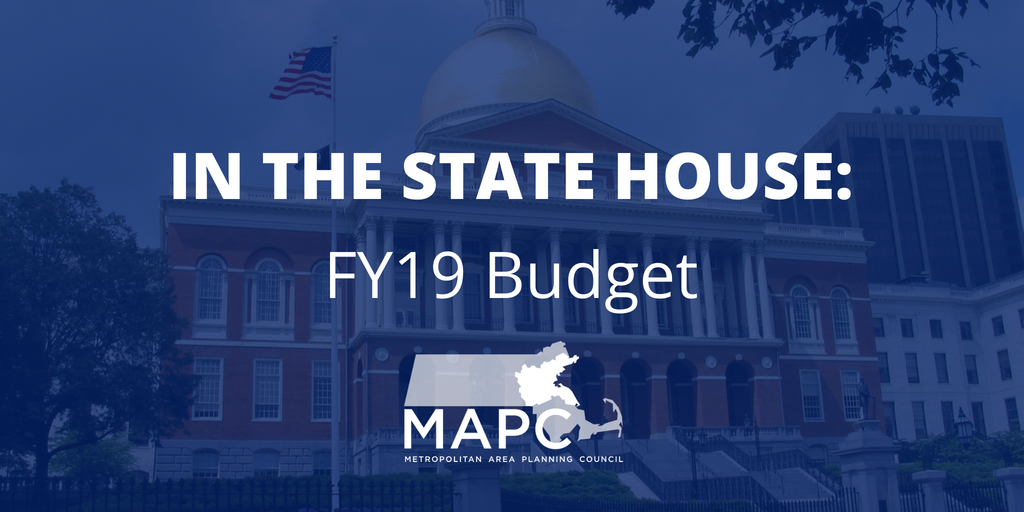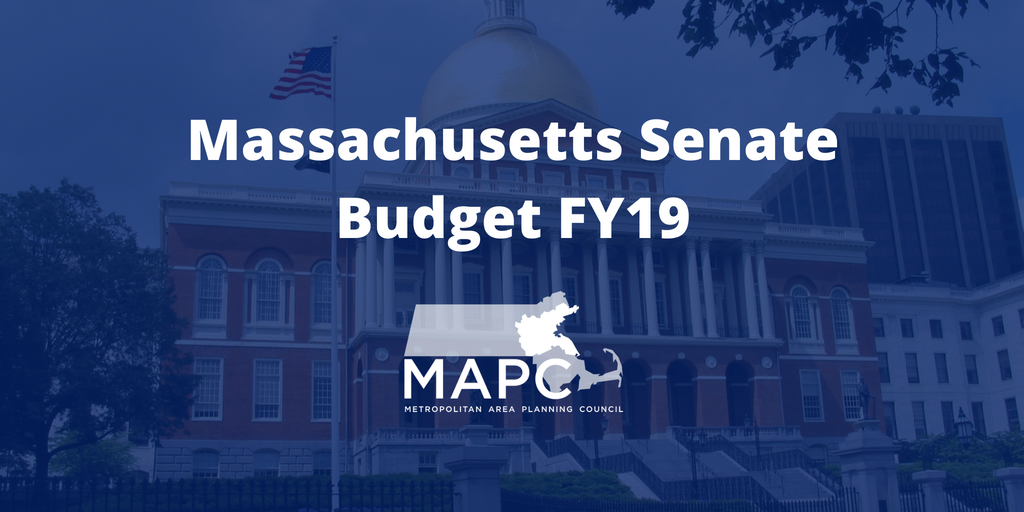
District Local Technical Assistance (DLTA) directly funds much-needed technical assistance for cities and towns. DLTA planning dollars help cities and towns on necessary projects that they don’t have the staff capacity to address on their own, and to partner with neighboring communities to tackle shared projects with reduced administrative burden.
DLTA funds can be spent on a wide variety of planning and implementation projects: zoning, housing production, economic development, conservation planning, and much more. It also helps cities and towns improve the efficiency and effectiveness of local services, and to work with their neighbors on planning, procurement, and services.
Learn more: DLTA Fact Sheet
Additional Information
MAPC's Technical Assistance Program (TAP)
Questions?
Georgia Barlow
Senior Government Affairs Specialist
[email protected]
Norman Abbott
Senior Government Affairs Specialist
[email protected]
FY27 Budget
MAPC is incredible grateful to the Governor and the Legislature for the work put into assembling the budget, and we look forward to working to ensure it supports resident in all cities and towns in the Commonwealth!
MAPC is respectfully requesting an increase to $4 million for DLTA for FY27.
Statewide Impact
DLTA dollars are distributed between Massachusetts' 13 regional planning agencies (RPAs). Nearly half of Massachusetts communities, including both cities and towns, don’t have professional planners to help shape their future economic development, transportation, housing, green spaces, and town facilities. RPAs help Massachusetts’ 351 cities and towns with these essential tasks, providing technical assistance on everything from updating stormwater guidelines to managing data to preparing economic development plans. The technical assistance work of most of these RPAs is funded almost entirely by DLTA.
Each year, MAPC and the other RPAs work with the Legislature to make sure that DLTA is adequately funded in the Massachusetts budget.

Unlocking Opportunities
With DLTA funding, cities and towns can plan for the long term and have the details of shovel-ready, shovel-worthy projects ready when federal competitive funding is available.
Communities can also use DLTA to unlock state funding opportunities and respond to state programs. This year, DLTA has helped municipalities:
- Work toward Roadmap Law emissions targets with climate action
plans, electric vehicle strategies, and municipal aggregation plans - Build local public health capacity in alignment with the SAPHE Act
- Develop a toolkit to support remote and hybrid meeting engagement
- Help municipalities implement economic development recommendations from Local Rapid Recovery Plans
- Revise zoning codes to comply with the Legislature’s MBTA Multifamily Zoning provision and respond to priorities in the Housing Choice Law
State Funds Go Even Further with DLTA
Many of the 13 regional planning agencies leverage this funding even more with outside funding and grant assistance, as much as doubling the amount of money the state provides. In 2024, more than $1,089,000 of non-DLTA funds, were secured to help advance these projects — a significant increase over the required 10% match.
Real Project Examples
DLTA Funded Projects
A significant share of TAP is funded by District Local Technical Assistance (DLTA) money appropriated annually by the State Legislature and Governor to regional planning agencies.
The following are the comprehensive mid-year reports regarding DLTA projects and activities.
You can learn about recently funded projects by visiting the TAP webpage.
DLTA helps cities and towns take action. Through DLTA, cities and towns can:
- Create housing production plans
- Rewrite zoning codes
- Expedite permitting
- Establish development conservation districts
- Develop design guidelines
- Improve public safety and emergency response
- Create energy and climate resiliency plans
- Improve regional service delivery
- Procure goods and services
- Collect data collection and conduct data analysis
- Collect data collection and conduct data analysis
- Create economic development plans
- Conduct public health planning
- Write stormwater guidelines
- Create open space and recreation plans
- . . .and more!
The blog posts below catalog some real-life project examples that MAPC has worked on.
Senate Budget: MAPC Call to Action
Help us support smart growth and regional collaboration in the budget by contacting your state senator today. Last week, the […]
Call to Action: Ask Your Legislator to Support MAPC Priority Amendments
MAPC Call to Action Help us support smart growth and regional collaboration in the budget by contacting your state representative […]
Senate Budget Call to Action: Support Regional Priorities
Help us support smart growth and regional collaboration in the budget by contacting your State Senator today! Massachusetts Senators filed […]




